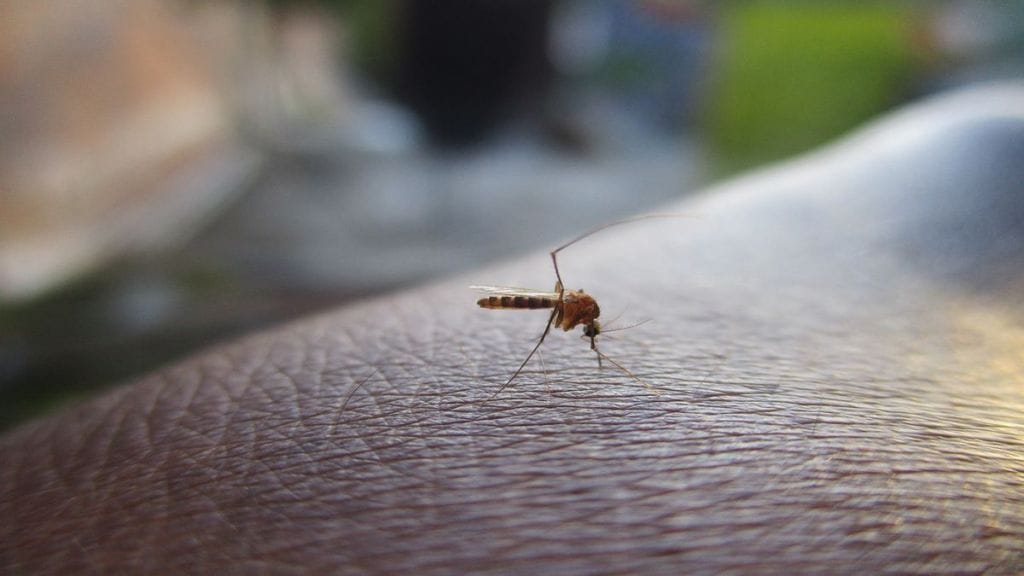Dengue cases in Delhi-NCR: Delhi has reported 105 dengue cases last week taking the tally of the cases reported till August 5 this year to 348 cases. According to the weekly mosquito-borne disease report released by the Municipal Corporation of Delhi (MCD), this is the highest number of cases reported till August 5 in at least the last 10 years.
Last year in August, Delhi reported 75 dengue cases and this year the spike is almost 40 percent high. Last month, Delhi reported 121 dengue cases.
According to the MCD data, in comparison to the 348 dengue cases reported between January 1 and August 5 this year, the city had reported 174 cases in 2022, 55 cases in 2021, 35 in 2020, 47 in 2019 and 64 cases in 2018. Meanwhile, the corresponding period in 2017 saw 185 cases, while 119 cases were recorded in 2016, 53 in 2015, and just 22 cases were reported in 2014.
In 2015, the national capital reported the worst dengue outbreak with 15,867 cases and 60 deaths. According to the MCD report, no fatality has been reported this year.
Recently, Delhi Health Minister Saurabh Bhardwaj held a meeting with medical directors and superintendents of various hospitals in the city and discussed strategies to deal with the spike in dengue cases in Delhi-NCR.
Earlier this month, Delhi Health Department stated that instructions had been issued to authorities to provide dengue test reports within 6-8 hours for timely treatment.
According to media reports, a dangerous strain of dengue is driving the spike in cases this year. Last month, health minister Bharadwaj stated that genome sequencing of 20 dengue-positive samples in the city showed that 19 of these had the severe Type 2 strain. While the Type 1 strain causes fever, the second strain can lead to fatal haemorrhagic fever with shock and chills, as per experts.
“The number of Dengue cases in the capital city has more than doubled in the last week. It has obliged us to address the year-after-year issue of Delhi reporting the highest number of Dengue cases. This is a multidimensional problem that requires our immediate attention and collaborative action. Several reasons contribute to Delhi’s worrisome prevalence of Dengue. The city’s tropical temperature, for starters, creates an ideal setting for the Aedes mosquito, the carrier of the Dengue virus, to thrive. The increasing population density and urbanisation exacerbate the problem,” Dr Tribhuvan Gulati, Lead Consultant, Diabetes, Obesity & Internal Medicine at the CK Birla Hospital (R), Delhi told Financial Express.com.
According to Dr. Gulati, the problem is exacerbated further by high population density and urbanisation, which creates abundant breeding sites for mosquitoes in the form of stagnant water in and around residences.
“A comprehensive approach is required to properly treat Delhi’s rising Dengue issue. This includes not only improving medical infrastructure and assuring the availability of necessary therapies, but also increasing public awareness, improving waste management systems, and fostering inter-agency collaboration,” Dr. Gulati added.
According to Dr. Seema Dhir, Sr. Consultant, Internal Medicine, Artemis Hospital, Gurgaon in this outbreak the patients have high fever and extreme body aches.
“Seeing a lot of dengue patients these days, I would say that the number of dengue cases on an average every day at least 15-20 patients are coming to the hospital and may be 5-6 of them are requiring admission also. Now the outset, I would say that it has spread earlier, I mean earlier we would see dengue cases mostly at the end of August somewhere, this time they started in July. Patients are presenting with high fever and a lot of body aches, some are vomiting,” Dr. Dhir told Financial Express.com.
She also revealed that they are also witnessing complications like falling platelets, there are itching rashes, some transaminitis, some elements of jaundice.
“However, at least none of my patients has required any blood transfusion or any platelet transfusion. Itching and rising hematocrit have been a definite problem in most of the patients. But I think as of now no real complications have been seen till now. But I would still say that the number of patients is very high for the for the month of August,” she added.
What is Dengue?
Dengue is viral infection that spreads from mosquitoes to people. According to the Center for Disease Control and Prevention (CDC), the virus spreads to people through the bite of bite of an infected Aedes species (Ae. aegypti or Ae. albopictus) mosquito.
According to the World Health Organization (WHO), almost half of the world’s population is at risk of developing dengue. It is extremely common in tropical and subtropical climate.
The global health agency reveals that DENV infections are asymptomatic or produce only mild illness. DENV, in certain cases, causes more severe cases and even death.
What are the symptoms of Dengue?
According to WHO, most people who suffer from Dengue have mild or no symptoms. Usually, it gets better in 1–2 weeks. Rarely, dengue can be severe and lead to death.
Symptoms may include:
- high fever
- severe headache
- pain behind the eyes
- muscle and joint pains
- nausea
- vomiting
- swollen glands
- rash.
- Individuals who are infected for the second time are at greater risk of severe dengue.
Severe dengue symptoms often come after the fever has gone away:
- severe abdominal pain
- persistent vomiting
- rapid breathing
- bleeding gums or nose
- fatigue
- restlessness
- blood in vomit or stool
- being very thirsty
- pale and cold skin
- feeling weak.
According to WHO, people with these severe symptoms should get care right away. After recovery, people who have had dengue may feel tired for several weeks.
How to prevent Dengue?
Dr. Dhir advised that keep yourself covered and avoid mosquito bites as far as possible.
“And the other thing is that one should if somebody has Dengue in the family, maybe you can use a mosquito net, mosquito repellent, etc should be used more often and if somebody has Dengue, no other medicine like Brufen or Combiflam should be taken without consulting a doctor,” she told Financial Express.com.
Dr. Dhir also said that in fact, for any fever these days, one should avoid these medicines because they can have a bad effect on the platelet function.
“…and drink lots of fluids. Any form of fluids is good for you, so you should consume lots of fluids and if there is incessant vomiting, if there is any bleeding from any site, if there is a lot of bloating in the stomach or any breathing issues, then one should consider getting to the hospital. If there is excessive menstrual bleeding or bleeding from any site, consider coming to the hospital,” she added.
‘Dengue Hepatitis is also being reported’
Dr. Ankita Baidya, Consultant Infectious Disease, HCMCT Manipal Hospital, Dwarka told Financial Express.com that they are witnessing cases of dengue hepatitis.
“We’re also seeing dengue hepatitis, like they’re having a Liver Inflammation causing deranged liver function tests, vomiting, abdominal discomfort, sometimes swelling and a bloated feeling in the abdomen, constipation, or loose motions. Few people are also coming up with rashes of dengue and warning signs of dengue, which require platelet transfusion with very low platelet counts and occasionally bleeding manifestations,” Dr. Baidya told Financial Express.com.
‘Prolonged duration of fever’
While talking about the current status of dengue outbreak, Dr. Sakshi Singh, consultant, Dept of Internal Medicine, Amrita Hospital, Faridabad told Financial Express.com that this time around, many patients are experiencing a prolonged duration of fever, lasting more than 5-6 days.
Additionally, several individuals have presented with symptoms like loose motions, gastrointestinal disturbances, cold, and cough, with fever being less prominent, she revealed.
“It’s also worth noting that tests commonly performed for dengue exhibit varying levels of sensitivity and specificity, and their relevance differs based on the stage of the disease. Not all test forms are equally accurate, so it’s important to undergo testing at standardized laboratories under proper medical supervision. Blood reports may need to be repeated and evaluated according to the patient’s condition,” Dr. Singh told Financial Express.com.
Furthermore, it’s important to keep in mind that dengue fever can coexist with other infections, and a person who has had dengue in the past can contract the fever again, she said.
“Given the current conditions, it might take another 2-3 months to observe a decline in dengue cases. Practicing general well-being and maintaining social hygiene are crucial in preventing the propagation of vectors. Overall, early diagnosis and timely management remain key factors in addressing this issue,” she added.









